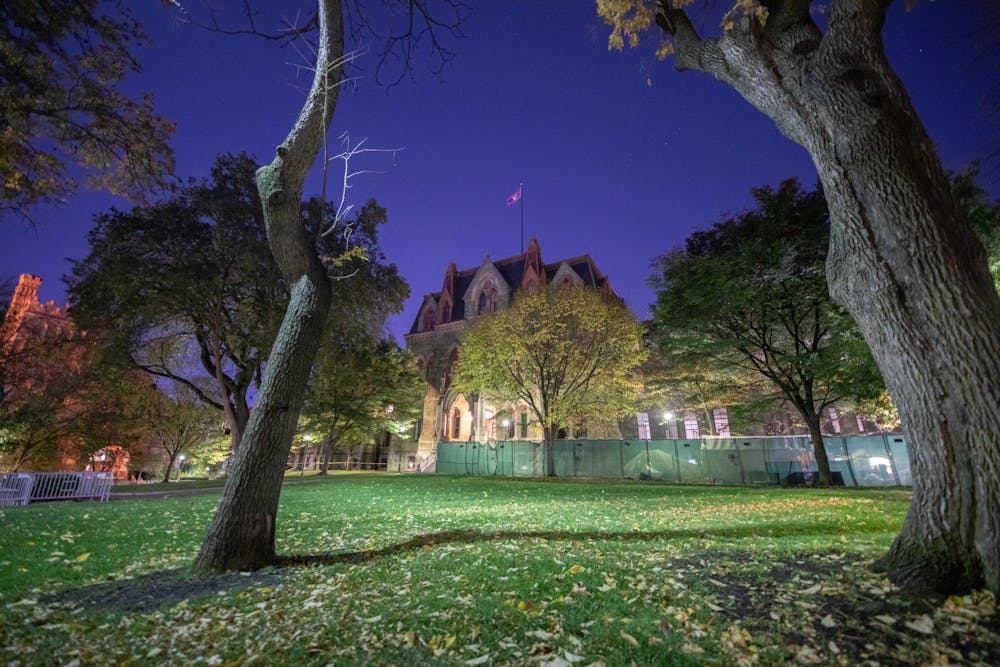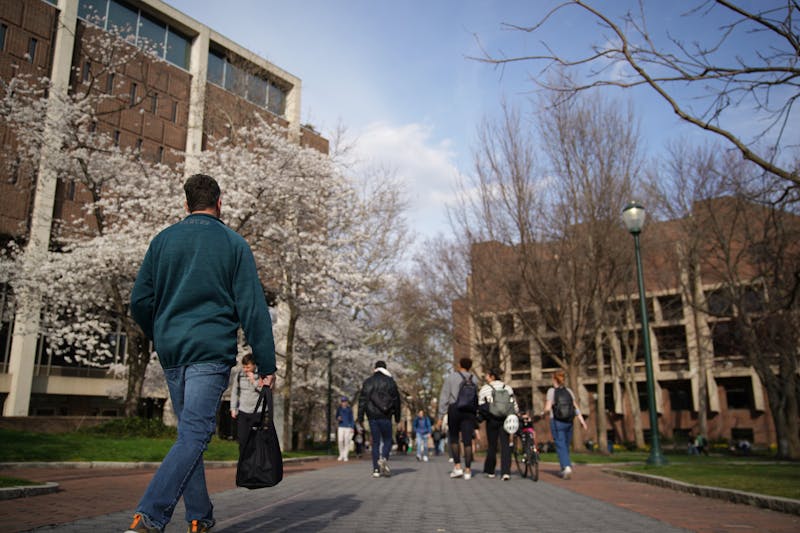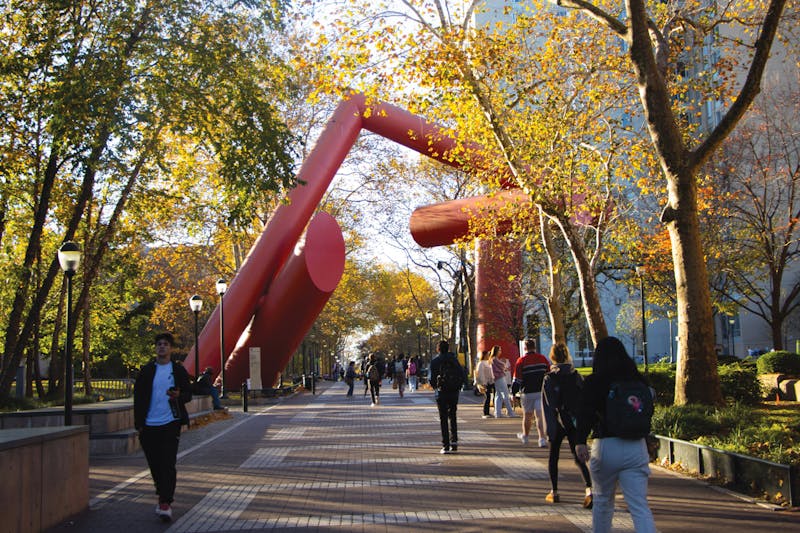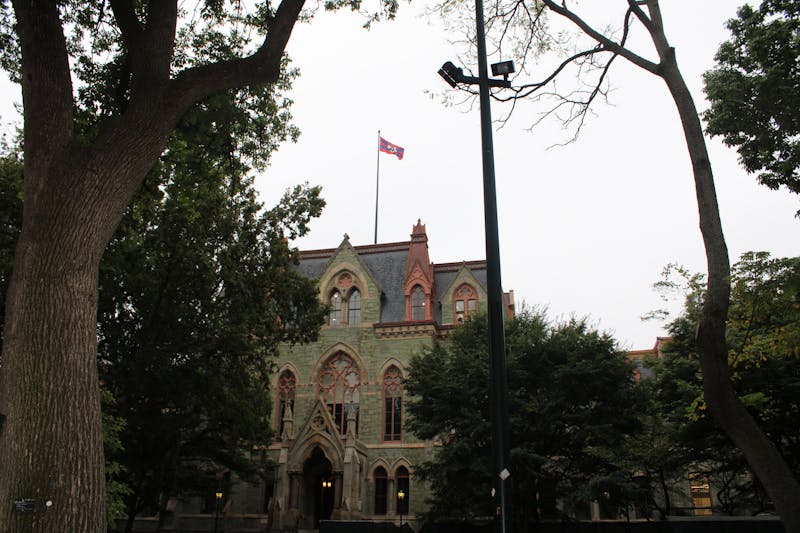
The Executive Committee of Penn’s Chapter of the American Association of University Professors condemned the University's Temporary Standards and Procedures for Campus Events and Demonstrations in a public statement last week.
The statement, which was published on Oct. 30 and is over 2,300 words in length, characterizes the policies as an “attempt by the central administration to strip faculty, staff, and students” of rights “necessary to education and to democracy itself.” The AAUP-Penn Executive Committee criticized the University's implementation of the guidelines, and alleged a failure by the University to uphold academic freedom.
A University spokesperson declined a request to comment on the statement or its contents.
Penn implemented new temporary guidelines for campus demonstrations and initiated a review of the previous Guidelines on Open Expression in June of this year. Interim Penn President Larry Jameson shared the updated policies in an email with the University community.
The Executive Committee wrote that the implementation process of the policies “make a mockery of the principle of shared governance.”
“The unilateral and secretive decision-making that produced these policies is indicative of Penn’s unaccountable system of governance,” the group said. “It underscores the need for faculty, staff, and students to work together to create legitimate, transparent, and democratic forms of decision-making. Those of us now subject to these rules had no part in creating them.”
The Temporary Guidelines specify increased regulations on the timeline and process for reserving University spaces for events and demonstrations but note that the exact procedure and required advance notice depend on the particular space a group intends to book. According to these guidelines, events must also be scheduled at least 48 hours in advance.
“The requirement … that we submit applications to the administration 48 hours to 2 weeks in advance to hold any kind of event makes the right to assemble and demonstrate conditional on prior administrative approval,” the Executive Committee wrote. “This grants the administration unacceptable latitude to deny permits based on the substance of the views expressed.”
The Executive Committee also noted that the requirement for advanced notice “prohibits timely responses to crises.”
“Protest is frequently a response to urgent situations and rapidly developing events, and a two-week permit procedure quashes expression at the moment when it is often most necessary and effective,” the statement reads.
The Executive Committee's statement further rebuked policies that allow administrators to check IDs at demonstrations, a ban on live streaming, and new restrictions on the use of University spaces. These limitations, the group said, constituted “surveillance” and “interrogation” by the University that would enforce a “chilling effect” on campus activism.
University administrators requested PennCard identification from Gaza Solidarity Encampment participants, which prompted criticism from AAUP-Penn.
In the statement, the Executive Committee criticized the University for targeting “antiwar protest and criticism of the Israeli government.” The group also said that the rules posed a “much broader threat” to the Penn community, regardless of political views, as they "all but ban assembly and protest on our campus."
“The rules themselves are in no way viewpoint-neutral: their timing and content both indicate that they are meant to silence speech critical of Israeli government policies and of the war on Gaza that the administration simply does not want to hear,” the statement read.
Penn announced a series of policies that moved the University closer to institutional neutrality in September. In an email to the Penn community, Jameson explained that the new policies prohibit University leaders from issuing public statements on local or global events that do not have a direct impact on the University.
The statement further criticized a provision of the guidelines requiring “respectful” treatment of University employees enforcing the Temporary Standards.
“This could prevent faculty, staff, and students from expressing dissent or protest against administrators who enforce these guidelines," given that "the administration has exclusive power to interpret and enforce this policy, and is therefore at liberty to define protest and dissent themselves as disrespectful.”
“The administration has exclusive power to interpret and enforce this policy, and is therefore at liberty to define protest,” the statement read. “Among other things, this would violate the academic freedom of faculty —specifically the right to freedom in intramural expression, which includes the right to criticize the University itself.”
The Executive Committee also questioned the enforceability of Penn’s temporary policies, alleging that they would “interfere with the basic academic functioning of the University.”
“We question whether these standards are enforceable at all or whether, either by design or by necessity, they can only be enforced in a discriminatory manner,” the group wrote. “If the administration plans instead to be selective and does not intend to enforce these rules consistently, then it must acknowledge that they are discriminatory in nature.”
Editor’s note: This article has been updated to provide additional clarification about the statement by the AAUP-Penn Executive Committee.
The Daily Pennsylvanian is an independent, student-run newspaper. Please consider making a donation to support the coverage that shapes the University. Your generosity ensures a future of strong journalism at Penn.
Donate











